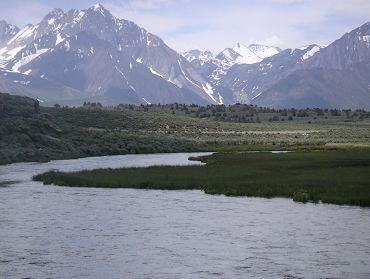|
Michael Wyly and Danielle Widemann
will be offering a Learning Communities course in Spring ‘07 entitled:
“English 2 and Geology 1: Earth Voices, the Earth and Our Human
Experience.”
How do humans define their roles in contrast to environmental
considerations? Robinson Jeffers’s poetry explores the human animal as
an element of the natural world. In so doing, he puts in perspective our
lifetime with processes of geologic time.
Gretel Ehrlich humanizes the experience of losing our cold climate areas
of the world. Edward Abbey’s Desert Solitaire explores what exists and
what has been lost in the North American desert. Our theme will include
the human impacts on the Earth as far as mining, resources, water
control, global warming, and other related topics.
Josh Stein and Danielle Widemann are also in the process of creating a
Learning Communities course for Fall ‘07 tentatively titled: “English 1
and Geography 1: Mother Nature in the Left Corner, Humans in the Right
Corner, Where will we go from here?”
The course’s main focus will be content from the Physical Geography
course with the English Composition course’s topics drawn from the
students’ studies in the science class. The idea is to show students
that scientific inquiry and the argument process have much more in
common than is usually understood.
The wider goal is to give students insight into the application of their
writing in a field other than English. In addition, the students will
develop a deeper learning of the science through the process of writing
and making arguments about physical geography.
In the Control of Nature by John McPhee, he writes about the Mississippi
River and man’s attempts to control and prevent the natural processes of
the river. In Geography and Geology, we learn about river systems and
consider the pros and cons of controlling rivers via extensive levee
systems, channelization and dams. In McPhee’s book, Encounters with the Archdruid, we will read the dialogue between David Brower (Sierra Club)
and Charles Parks (Mining Geologist) while they debate the issues of
open pit mining while they hike through Plummer Mountain.
In Earth Science courses, students learn basic concepts without the
in-depth connection to their everyday life, the choices they make, the
history of these choices, and how they will affect and determine the
human condition. Literary selections will therefore focus on giving a
face and a voice via the integration of the human experience.
-Article by Josh Stein, Danielle Widemann, and Michael
Wyly |



|



